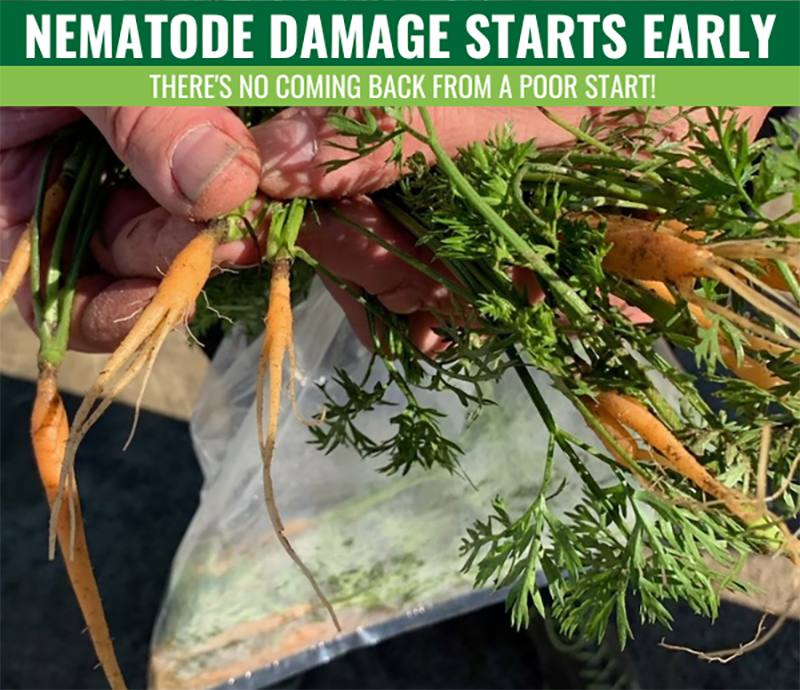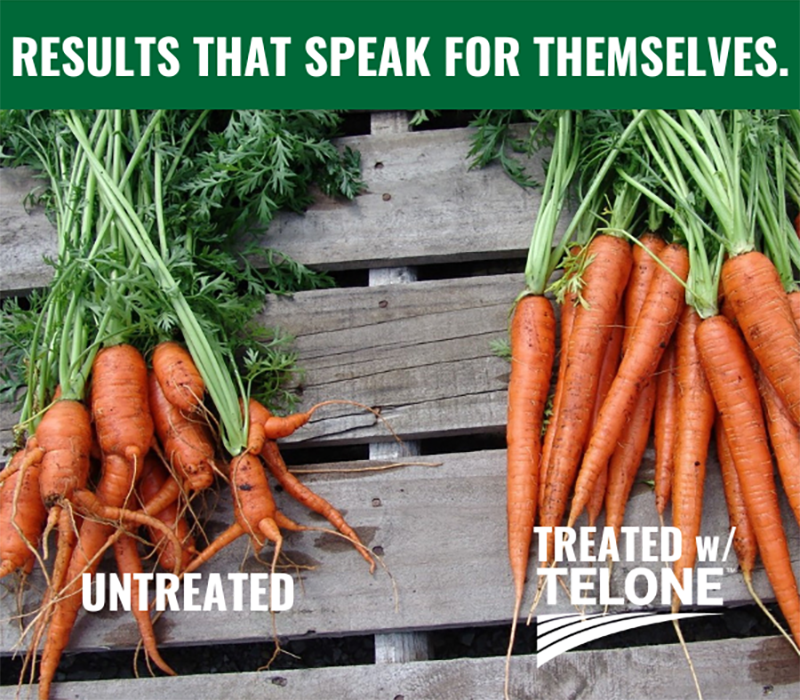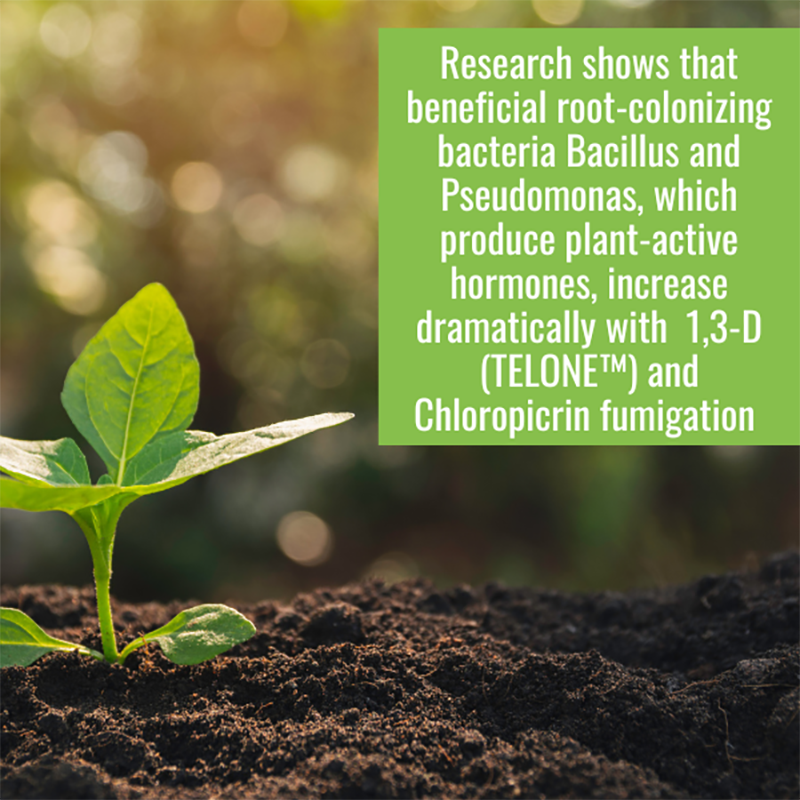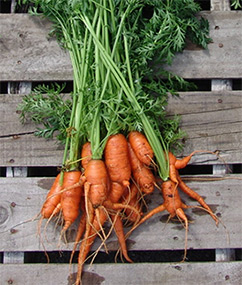The Problem Of Nematodes In Carrot Crops
Typically found in coarse-textured soils, Nematodes are a common pest in New Zealand’s carrot-growing areas. Root knot is the predominant species, but many other species such as – cyst, lesion, sting, needle, and stubby root – can also be found. Nematodes attack developing carrot roots, resulting in damage that manifests itself in many ways throughout the season. And unfortunately, highly resistant commercial carrot varieties to Nematodes are not currently available in New Zealand.

What Do Nematodes Do?
Specifically, Nematodes damage carrot roots’ xylem tissue, which interferes and disrupts the normal flow of water and nutrients through the plants. Deficiencies result, and plant growth throughout the season is slower and uneven, which can result in delayed harvest, a shorter harvesting window, and lower yields.
From a pest standpoint, slower growing plants cannot compete with weeds, insects or diseases as well as more vigorous plants. With diseases specifically, the microscopic holes created by Nematode feeding become sites for bacterial and fungal diseases to colonise.
Nematodes Can Make Carrots Unmarketable
The worst part of Nematode infestations is that they can make carrots unmarketable. Carrot plants’ normal response to Nematode feeding is forking and splitting, characteristics that generally eliminate selling to the fresh market. Forked and split carrots are also difficult to process into baby carrots.

TELONE™ II Helps Control Nematodes
Due to the nature of Nematodes – where they’re found, how they move, and what affects them – the most effective product for control is a soil fumigant, such as TELONE™ II.
However, TELONE™ II does more than just control Nematodes. It allows roots to develop in an environment where carrot plants grow better and stronger by creating a zone of protection around roots in the first 6-8 weeks of growth.
Furthermore, starting carrots out with a strong root system leads to many other benefits including:
- Better plant stand
- Earlier and more uniform crop
- More efficient use of water and fertiliser
- More seed variety choices

Why Leicesters Uses TELONE™ II For Nematode Soil Fumigation
True fumigants such as TELONE™ II differ from contact nematicides in that they move through the soil on their own, rather than requiring water or incorporation for movement. This characteristic is extremely important with root crops. Furthermore, because true fumigants such as TELONE™ II form a complete zone of protection around roots, they offer more consistent results than contact nematicides.
TELONE™ II is injected into the soil as a liquid and quickly evaporate into a gas. The vapours move through soil pores and eventually dissolve into soil water. That movement through the soil is fundamental and essential to the effectiveness of fumigation for Nematode control in carrot crops.

Better Carrot Crops & Better Yields
By applying TELONE™ II before planting, you create a zone of protection for delicate developing root systems to thrive, leading to healthier plants and higher yields. A custom blend of TELONE™ II and chloropicrin can also help combat soil borne diseases like pink root, wire worms and Fusarium, for an effective all-in-one pre-plant solution.
By significantly reducing Nematode populations, TELONE™ II becomes part of an effective long-term Nematode management programme, so carrot growers can look forward to better crops and better yields.


